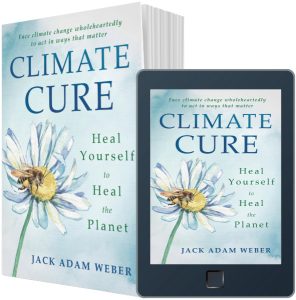
Without intellectual and emotional honesty we can’t get much good done, nor thrive, nor even survive very well.
Intellectual honesty is being honest about what we represent to be true. Emotional honesty is being honest and in touch with what we are feeling, and in advanced form, how it influences what we assert to be true.
Our beliefs are generated by cognitive and emotional distortions, defenses, and shadows. It’s clear that our beliefs determine many of our actions. If our actions are based on poor beliefs informed by emotional incongruity, we will create suffering.
Reckoning of truth comes down to honesty—self-honesty— because, as we’ve learned, none of us can force anyone else to believe what we think is true. They have to be honest to look into their own defenses and shadows.
Think of any debate you’ve had, any sharing of information to align with truth for a more cohesive community. What does it come down to? Exactly—to one person admitting they are wrong, or that they have learned something, to any degree. And not just for the sake of being wrong, but to open their mind and change it. That takes intellectual and emotional honesty. How so?
If someone is too afraid of being wrong, emotional dishonesty (hidden fear is a common cause) will cause them to be intellectually dishonest (keep arguing bullshit points without pausing to notice how they feel or that their illogic is being revealed). Similarly, if someone simply has the wrong info and doesn’t admit it—intellectual dishonesty—this perpetuates false beliefs, and causes more suffering.
Most of life and truth are a spectrum of grey, but this doesn’t mean that all truths are relative; in other words, we don’t have to accommodate beliefs that are simply false, or largely so.
Naturally, I have to ask myself if am intellectually and emotionally honest. Honestly, sometimes I will engage in intellectual dishonesty when I see that someone is making a false overarching point and I simply don’t know if what I am saying is true, but I take a stab because I see that their premise is BS. It’s a bluff really, and a short cut to researching something I just don’t want to, or will take too much time. But I realize I do this, and I get called out on it, I’ll ease up or just admit ignorance.
Other than that, I realize that I don’t usually debate topics beyond my knowledge. Instead, I ask questions and listen, intently. So, I don’t get into debates where I really have to be dishonest; I recognize my weaknesses and try to strengthen then humbly and inquisitively, not by asserting expertise in ignorance.
Part of the problem on the internet these days is that lots of folks wants to feel important and do so by playing the expert, or trying to add insight that is not rigorously integrated through an honest heart-mind. And they get into domains about which they are ignorant and unwittingly lie their way through it.
Largely, it seems most peoples’ epistemology (how we come to know what we know) is whack. One of the biggest pitfalls in this department is objective vs. subjective knowing. In short, objective knowledge is best gleaned by scientific rigor while subjective knowledge is opinion or personal experience. Not knowing this, one is already adrift in the sea of delusion.
I’m just trying to share how both cognitive and emotional work are essential for a sane world. It begins inside us, even if this means creating equal opportunities for all to gain honesty in heart and mind—for example, imagine if politicians and corporate moguls, who make the rules and create policy, were honest with themselves and even others.
I hope you learned nothing new here.

